Henk Vandecasteele
Katholieke Universiteit Leuven, Belgium
Fast Frequent Querying with Lazy Control Flow Compilation
Jan 16, 2006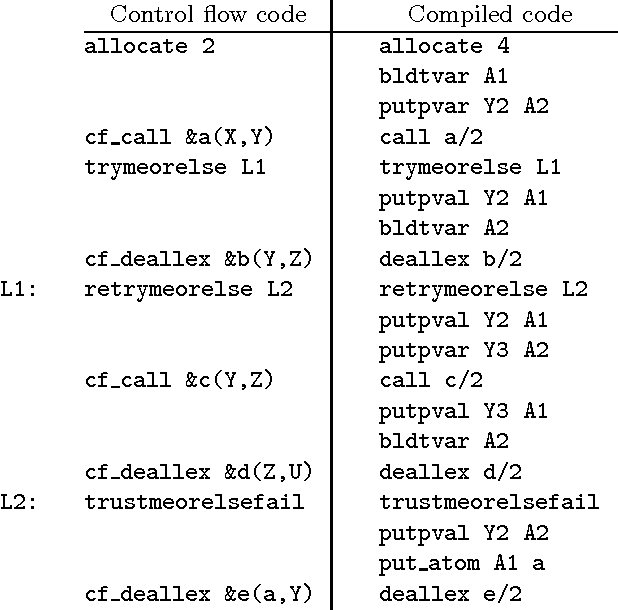
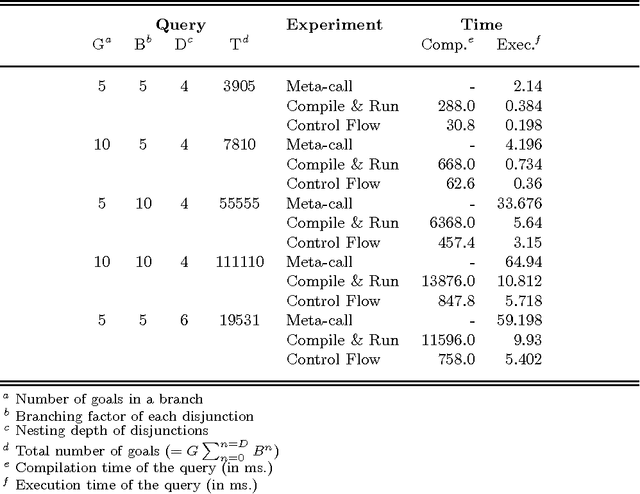

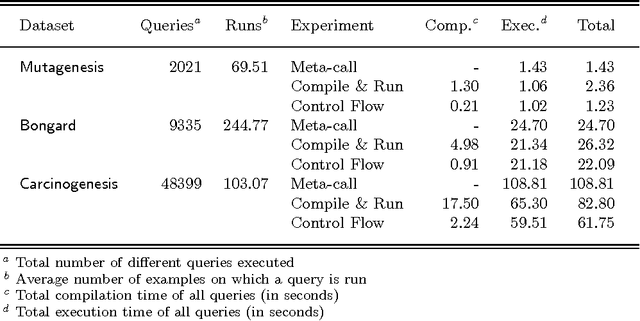
Abstract:Control flow compilation is a hybrid between classical WAM compilation and meta-call, limited to the compilation of non-recursive clause bodies. This approach is used successfully for the execution of dynamically generated queries in an inductive logic programming setting (ILP). Control flow compilation reduces compilation times up to an order of magnitude, without slowing down execution. A lazy variant of control flow compilation is also presented. By compiling code by need, it removes the overhead of compiling unreached code (a frequent phenomenon in practical ILP settings), and thus reduces the size of the compiled code. Both dynamic compilation approaches have been implemented and were combined with query packs, an efficient ILP execution mechanism. It turns out that locality of data and code is important for performance. The experiments reported in the paper show that lazy control flow compilation is superior in both artificial and real life settings.
Detecting Unsolvable Queries for Definite Logic Programs
Mar 17, 2000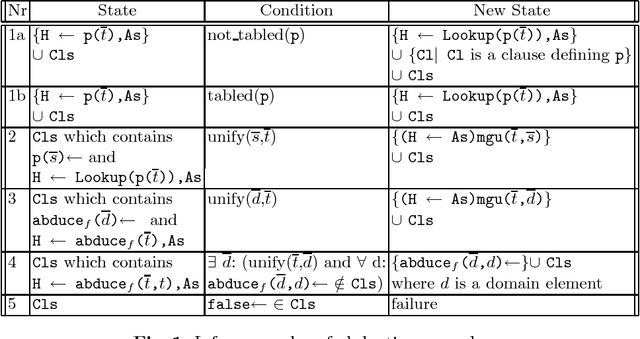
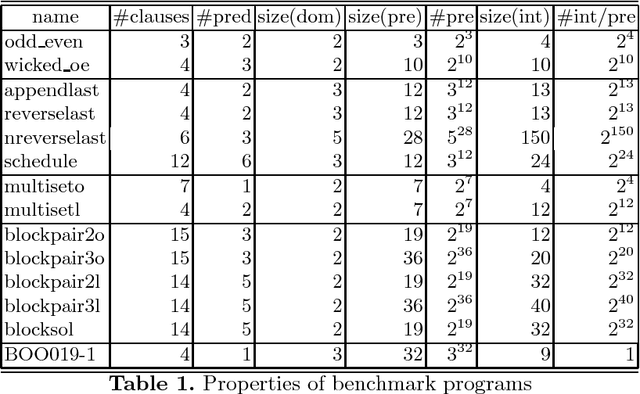

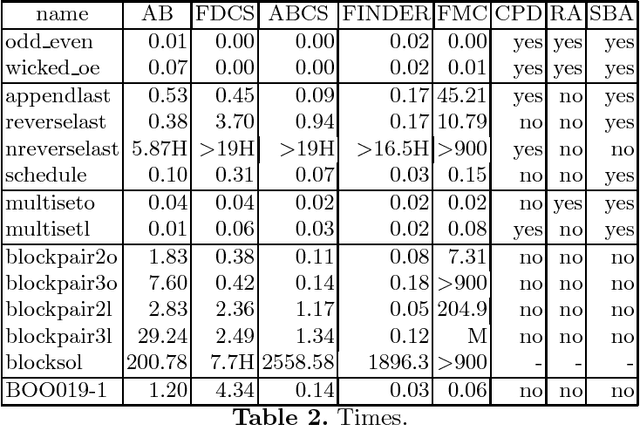
Abstract:In solving a query, the SLD proof procedure for definite programs sometimes searches an infinite space for a non existing solution. For example, querying a planner for an unreachable goal state. Such programs motivate the development of methods to prove the absence of a solution. Considering the definite program and the query ``<- Q'' as clauses of a first order theory, one can apply model generators which search for a finite interpretation in which the program clauses as well as the clause ``false <- Q'' are true. This paper develops a new approach which exploits the fact that all clauses are definite. It is based on a goal directed abductive search in the space of finite pre-interpretations for a pre-interpretation such that ``Q'' is false in the least model of the program based on it. Several methods for efficiently searching the space of pre-interpretations are presented. Experimental results confirm that our approach find solutions with less search than with the use of a first order model generator.
* 32 pages including appendix. A preliminary version appeared in proceedings PLILP/ALP98 (Springer LNCS 1490) This version, without appendix appeared in Journal Functional and Logic Programming 1999
 Add to Chrome
Add to Chrome Add to Firefox
Add to Firefox Add to Edge
Add to Edge